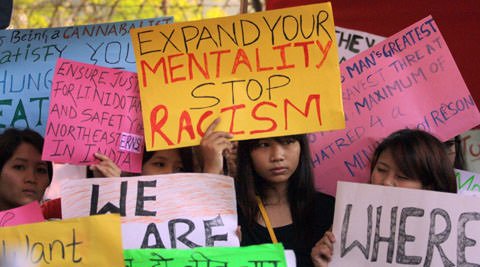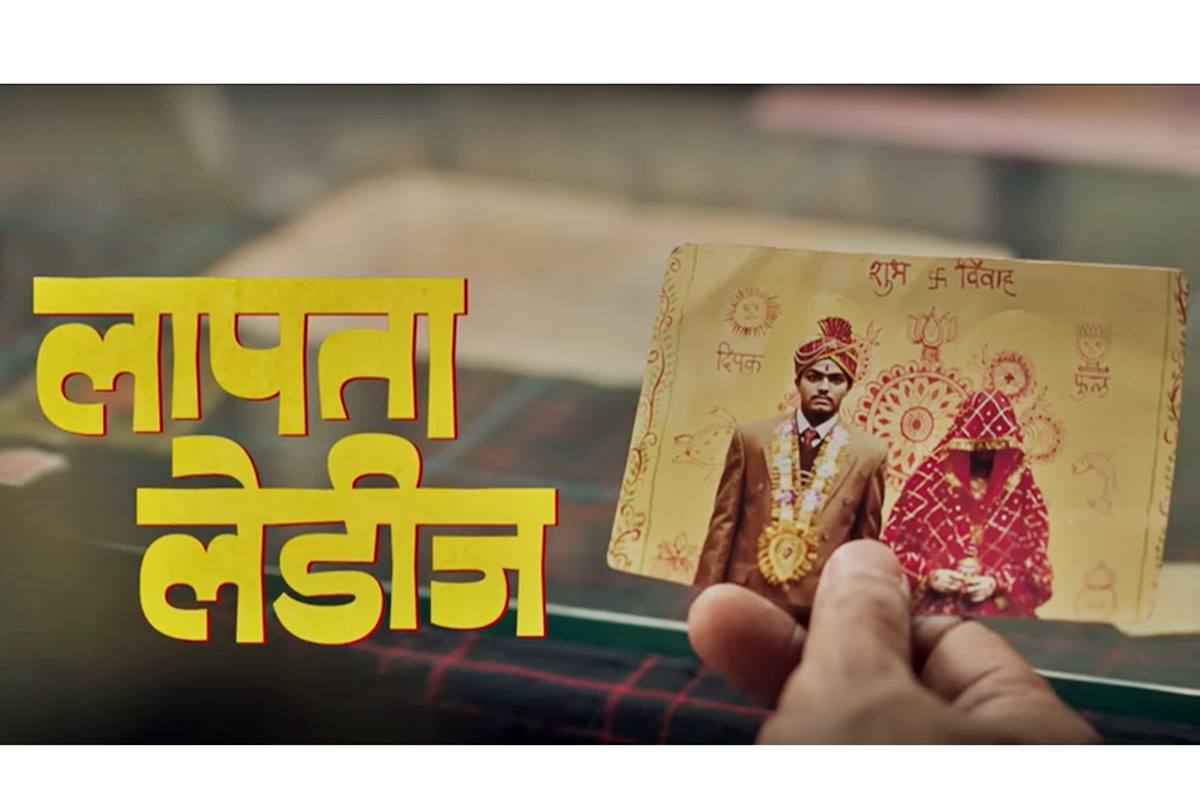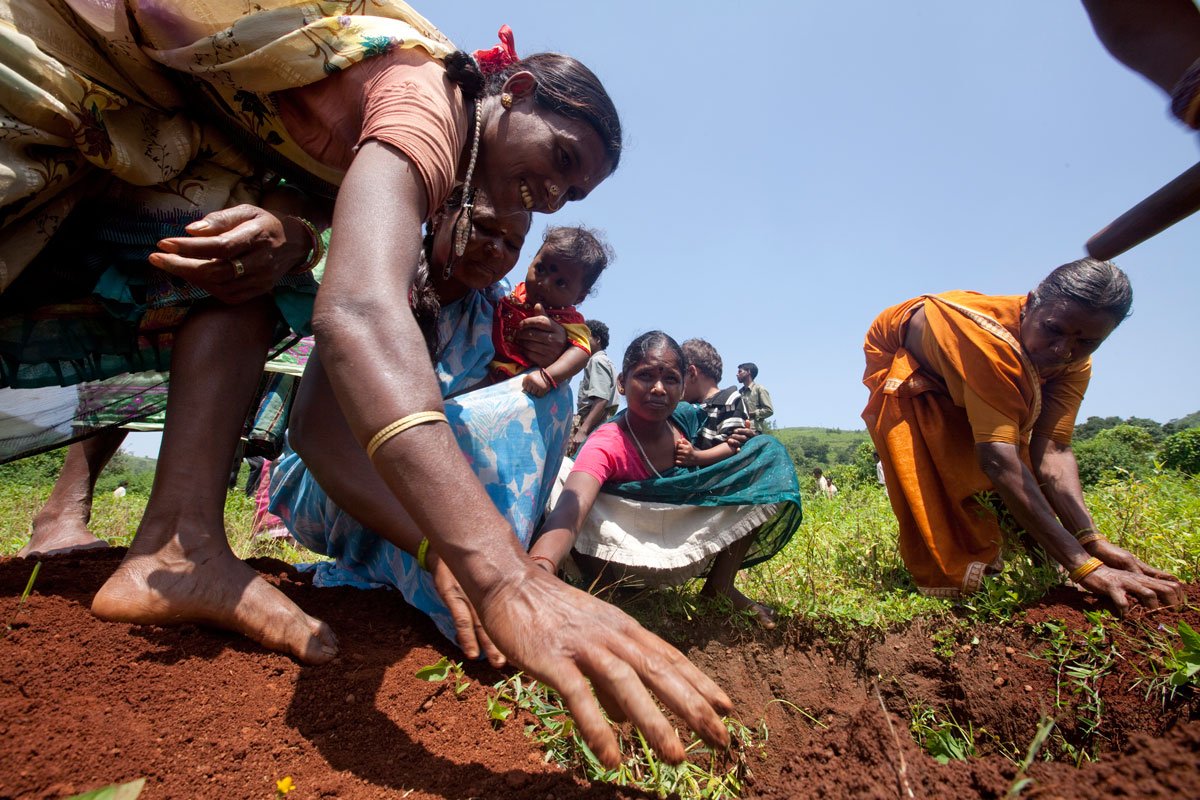I’m 21 years old, originally from Assam, born in Madhya Pradesh and raised in Delhi. Often when people ask me where I’m from, my natural response is, “I’m from Delhi.” because that’s where I live and have lived almost all my life. However, this reply leaves most people unsatisfied, and they ask me again, “Where are you really from?”. I understand their need to question me twice, because of the incongruence between Delhiites and Mongoloid faces. But I truly envy my North Indian friends who don’t have to elaborate on their family’s history of migration. There have also been times where fellow Indians have asked me, “Which country are you from?” I can’t help but condescendingly reply, “Umm, India..” However, it’s not instances like these that I find particularly offensive, but it’s when people are intentionally racist towards me to have a laugh or to satisfy their power drive.
When I was in primary school, we were reading a story set in Japan, and a boy stood up in class and comically asked the teacher, “Ma’am, is Maduli from Japan?” Of course, he knew I wasn’t Japanese. His goal was to be funny, which he accomplished quite successfully. The whole class laughed, while I tried to hide my face behind my desk. This was fourth grade. It was the first time in my life that I was brought to the limelight. And what for? My ‘different’ looks.
By middle school, the word “chinki” had entered everyone’s vocabulary. My friends began to call me Chinki, and it didn’t bother me much, because it was just one of those things that friends did to poke fun at each other. However, the times I did feel antagonized were when random strangers would scream “Chinki/Ching-Chong”, in the most crass manner ever, with the sole aim to hurt and harass me. They would shout these names, giggle in groups, and I would stand there thinking, “How is this even remotely funny?”
When it was time for high school, I moved to a school where there were very few people who ‘looked like me’. Receiving racial slurs became a part of my daily routine for the first few months of school. I would wonder, “Which food item am I going to be called today? Chowmein? Momo? Noodles?” But things got better as I made more friends. However, I had the most frustrating experience in 10th grade, when I tried to call out a pair bullying my friend. They ambushed me with comments like, “Shut up. You’re a chinki”, and chanted, “Go back to Tibet.”
While people compliment Northeastern women for their unique dressing sense and naturally straight hair, they also ridicule them for their Mongoloid features. In a society that glorifies big eyes, it is inherent for people with smaller eyes to be teased in our insensitive society. I have been mocked for my ‘small eyes’, ‘thick calves’, and my ‘flat face’. This one boy even asked me, “Teri ma tere chehre pe roti belti hai?” (Does your mother flatten dough on your face?)
Northeast Indians are also bullied for their lack of fluency in Hindi and for their unique accents. It’s high time Indians accepted that Hindi is not everyone’s mother tongue, and celebrated India’s linguistic and ethnic diversity.
Racism occurs as a result of the power differential in minority-majority relations.
Also, let’s not forget all the other prejudices held against us – a Northeastern woman has a ‘loose’ character, she eats dogs and insects, etc.
Quite frankly, I have lost count of the number times I’ve been subjected to such mindless racial slurs. But each time I’m left feeling equally infuriated and helpless. I want to scream back at them, but I don’t want to start a fight. I want to rationalise with them, but I cannot because they’re not the type who listen. So I walk away. I ignore.
Sometimes I even wonder if walking away from these racists and bullies is the ideal way to respond to such blatant racism. I feel quite guilty when I think, “I could have said something. This way they’re never gonna stop.” But I ignore it because I fear that calling them out in person might just lead to further harassment and violence towards me.
The horrors of Nido Taniam’s death and the multiple cases of assault on NE women in the recent years still run deep in the minds of many NE students in the capital. These recurring cases of violence, and the continued usage of racial slurs even after the practice having been declared a punishable offence, reveal the deep-seated culture of bullying and ethnic intolerance in our Indian society.
My experiences lead me to wonder if humans are inherently racist. Does the process of othering come so naturally to us that even little kids indulge in it? And is the temptation to pass racial slurs so irresistible that people can’t refrain from it despite there being a law criminalising it?
Many argue that racist attitudes towards people from the Northeast stem from the lack of understanding of their culture and their alienation from the mainstream. However, this is only partially true. While familiarizing people with Northeast traditions and culture may encourage people to rid themselves of certain long-held prejudices and preconceived notions, it does not help with the racism that occurs as a result of the power differential in minority-majority relations. It is only when people begin to look beyond their immediate identities, let go of their hunger for power and become compassionate towards each other, can we hope to assuage the rampant racism that we see today.
Lastly, I’d like to point out the hypocrisy of many Indians; they condemn the whites for their acts of racism against Indians and people of colour, but they treat the minorities in their in their own country with similar callousness. And those who may not actively indulge in these racist acts, do nothing to curb them either. “Not my problem” is what most of them believe, and remain content in their privilege. And this apathy, as described by Martin Luther King Jr., really is the ultimate tragedy.
‘Go back to your country!’, screamed the white man to an immigrant.
‘Go back to China!’, screamed an Indian to another Indian.





Dear Maduli,
This is unfortunate but trying to equate features with the ‘origin’ of birth is a sad but true aspect of even the so called multi-cultural society. I will give you an example. I live in Toronto currently. Yesterday, some colleagues were socializing after work hours- one of them asked another colleague (who had north Indian facial feature)- ‘Where are you from?” Their reply was “I am a Canadian”. Next question was: “Where are you really from?” Now, this was not necessarily inspired by malice in this case, but sharing the world as a human beings and setting aside everything else that separates us is a dream that we are far away from achieving. But here’s hoping, someday we will. And meanwhile, thank you for stepping up and telling what everyone needs to hear. Society often needs a mirror and such candid and beautifully written accounts are best way of doing that.
Of course, Suchandra. Questions about my roots are far from offensive. People are curious, and that’s alright. All I was tryna say, that answering the question “Where are you from?” calls for more effort from me, than perhaps someone whose family has migrated from other parts of India. It’s not particularly unfair or anything. But it’s annoying to me. I was merely cribbing 😛
Maduli, your well written article touched my heart deeply and I am so sorry to hear what you faced by some highly ignorant people of such racism, lack of consideration and indecency. I hope they understood their unacceptable mistakes as this behavior is to never be tolerated. Karma is out there. It is sad how many are ignorant in our country India which is a subcontinent with diverse looking people and over hundreds of languages, different races and ethnicities and customs. Our small neighbor Nepal is also a subcontinent of different looking people and races and truth is not all Nepalese are Mongoloid and southern region of Nepalese look like South Indians a lot.
I tend to hear Delhi sadly as the capital continues to be a racist city for all and I have heard how South Indians tend to face harassment and discrimination too as well as NE Indians. It is also heartbreaking hearing of incidents of where African people and European white women have been targeted and raped.
I have to tell you that I love your state Assam a ton and have visited three times and have visited Guwahati, Jorhat, Majuli, Dibrugarh, Tezpur and loved it. Love your state’s people and customs. I love Bihu music lots and I have noticed in NE how Assam is different from other 7 NE States (Sikkim, Tripura, Manipur, Meghalaya, Mizoram and Arunachal). I noticed how Assamese people have different faces and not all are of Mongoloid features. Plus, I have visited Meghalaya, Nagaland and Sikkim too and loved them too! I used to date a Naga girl. I loved encountering the traditional Indian customs and food even in NE while encountering their specific customs too 🙂
Hope all well and keep up the good fight. I love diversity and glad you are my fellow Indian as we look different. I am from Orissa.
Best,
Samar